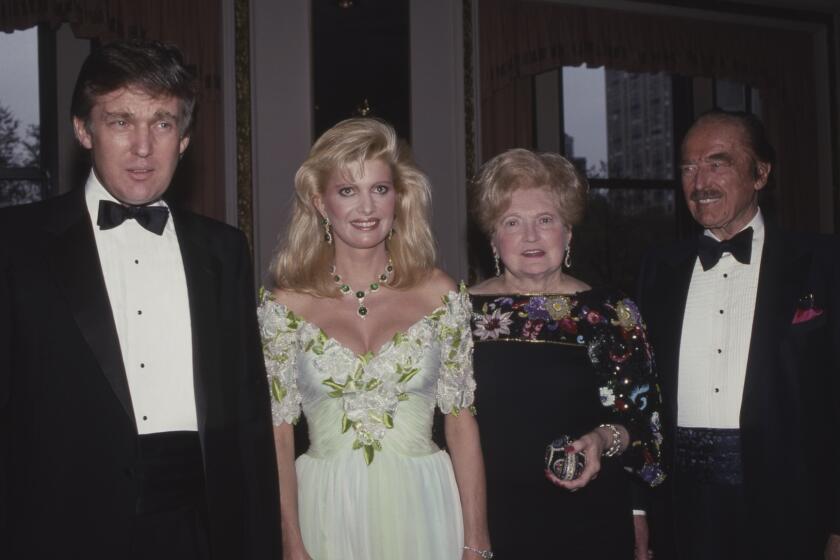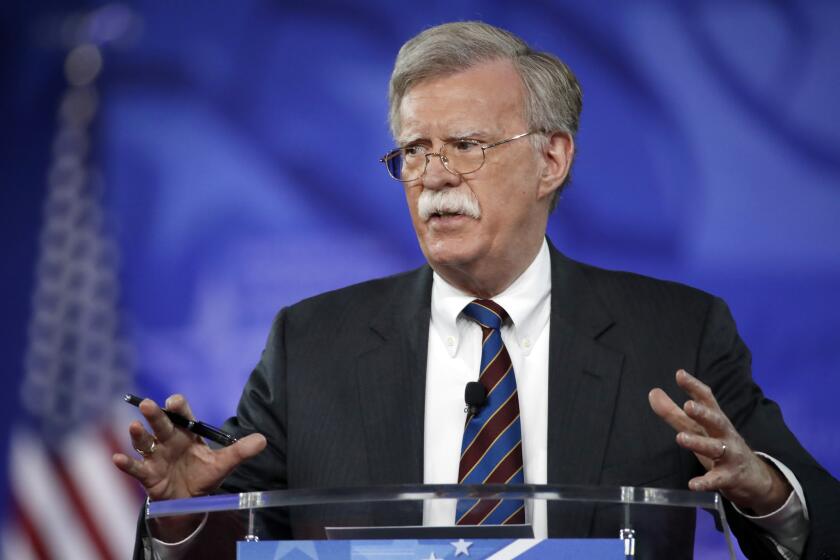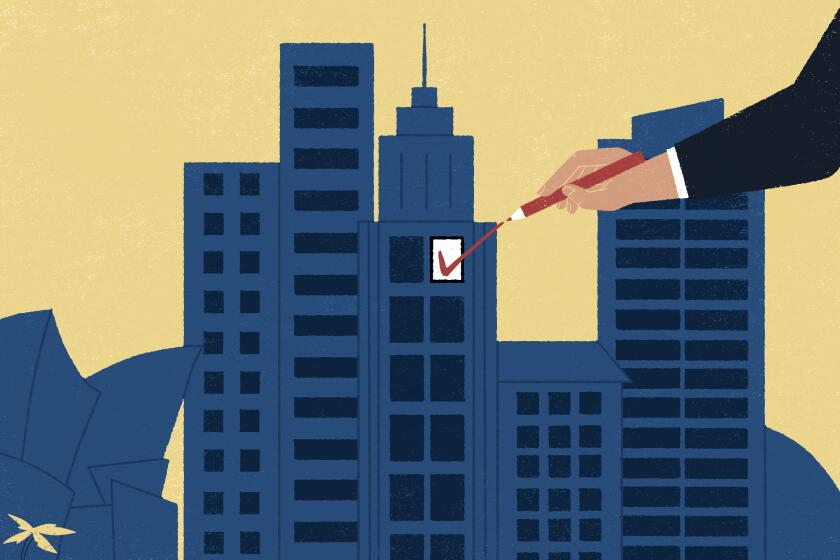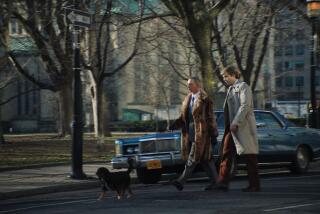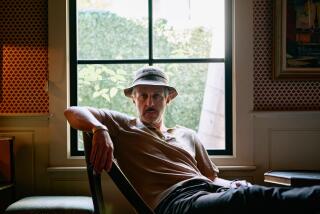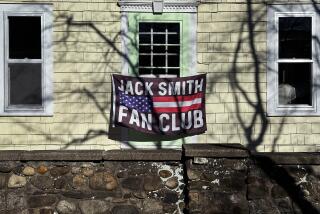In a crowded field of Trump exposĂŠs, only Michael Cohenâs shows how he corrupts souls
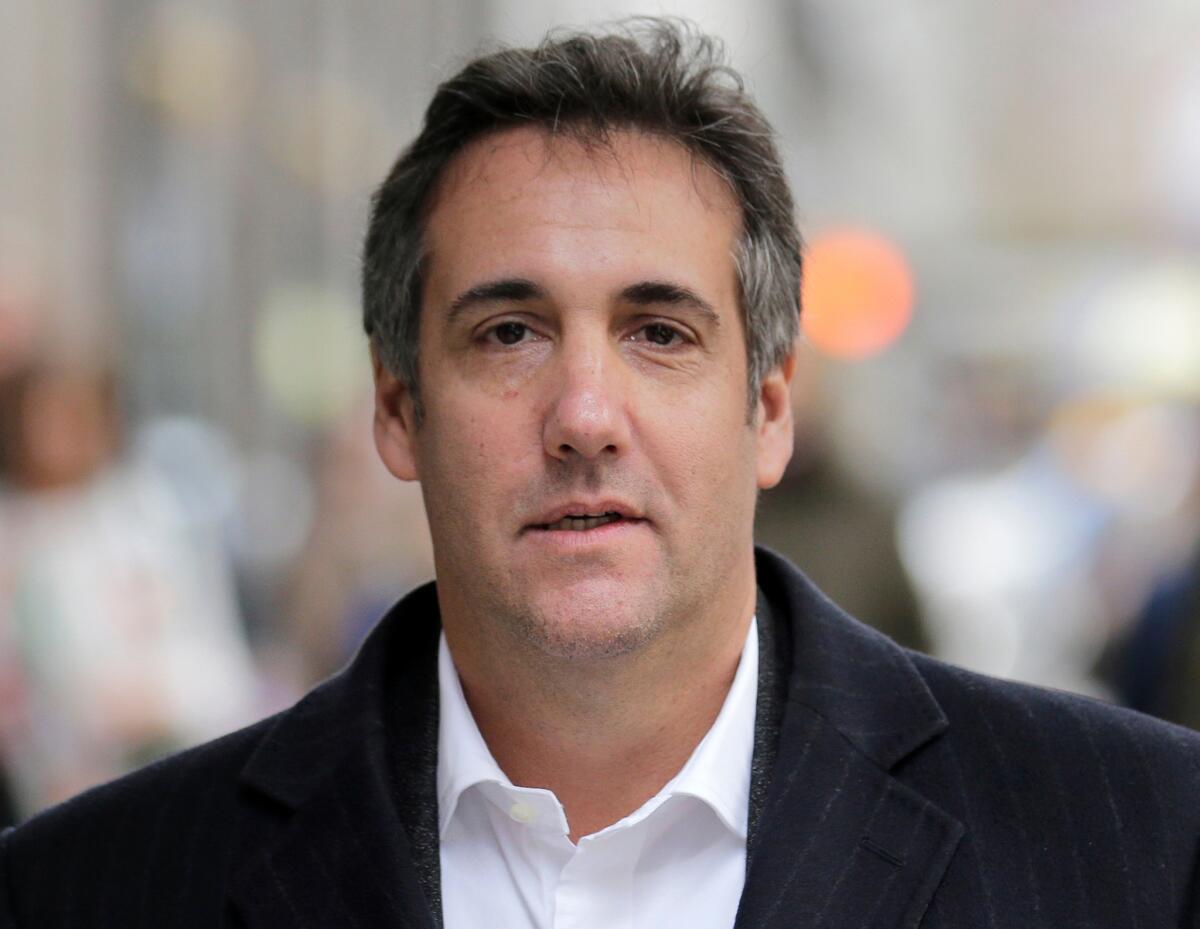
On the Shelf
Disloyal: The True Story of the Former Personal Attorney to President Donald J. Trump
By Michael Cohen
Skyhorse: 432 pages, $32.50
If you buy books linked on our site, The Times may earn a commission from Bookshop.org, whose fees support independent bookstores.
Decades before Michael Cohen rose to fame as Donald Trumpâs lawyer-fixer, he spent summers working for his uncle Morty at the El Caribe, a lively Brooklyn social club frequented by New York mobsters.
It was there, on a âgloriousâ sunny afternoon in 1980, as Cohen recounts in âDisloyalâ â his mea culpa memoir of his relationship with Trump â that he witnessed a drunk patron skinny-dipping in the crowded pool get shot in the rump by a local hood.
âI had been an eyewitness to the whole scene,â he writes. âI had seen the shooter and could identify him, of course.â But after a hard look from another gangster, Cohen got wise and told the police nothing. His reward was $500, slipped to him in an envelope.
It was a formative moment for the young Cohen, helping explain his later cult-like fascination with Trump: if you were tough enough and flashed enough cash you could get away with shooting somebody in broad daylight â or in the middle of Fifth Avenue.
The lesson would serve him well as he rose from the El Caribe to Trump Tower in Manhattan, where in 1996 he went to work helping Donald Trump chase his every âdesire and demandâ while imbibing the intoxicating âpleasure of inflicting harm and exercising raw power.â
Cohen isnât the first author to recount Donald Trumpâs failings as a businessman, husband and person. His account competes with other books about Trump by his niece, journalist Bob Woodward and others currently flooding the market. But Cohen is certainly the one closest to his subject, not just a witness but an eager participant in the future presidentâs many excesses.
The Presidentâs âonly niece,â clinical psychologist Mary Trump, portrays a man warped by his family in âToo Much and Never Enough.â
This proximity provides an answer to one of the great mysteries: How does Trump, for all his flaws, command loyalty, especially from people who know him best?
âThe answer, I was coming to see, included something deeper than the obvious lure of money and powerâŚ. It was physical, emotional, not quite spiritual, but a deep longing that Trump filled for me,â he writes. âAround Trump I felt excited, alive, like he possessed the urgent and only truth, the chance for my salvation and success in life.â
Itâs Cohenâs inner life that gives his book its considerable power.
By the time Cohen went to work for him, Trump was shunned by big banks, making his money mostly by licensing his name and appearing on television. Cohen was his consigliere, the tough street lawyer whose job, he says, was stiffing Trumpâs business partners and burying his scandals.
He writes that he also encouraged Trump to run for president, first in 2011 and then in 2015, and orchestrated Trumpâs now famous ride down the escalator in Trump Towerâs marbled lobby.
Cohen would eventually pay the same price many wise guys have for years of unquestioning loyalty to a godfather.
By 2018, he had pleaded guilty in federal court to multiple crimes â including lying to Congress and violating campaign finance laws by making hush-money payments to two women who claim they had affairs with Trump (which the president denies).
He would wind up an inmate, called a âratâ by the man he once served. His book was written in Otisville Federal Prison, in upstate New York, on breaks from his job in the sewage treatment plant.
Thereâs an unstated message in Cohenâs account that each of us is supposed to ponder: Are we all a little like him, possessed of some deep national neediness (even if only via the adrenaline rush of the latest outrage) for a serially bankrupt golf course operator serially accused of sexual assault? Havenât we all rightly ended up, metaphorically speaking, in the sewage treatment plant?
Cohen self-destructive descent into Trumpland foreshadows the countryâs, or so his account implies. Trumpâs transparent lies and boastful grievances corrupted some deep part of his soul, as it would those of his voters a decade later.
Oddly, Cohen says he still cares for Trump âeven to this day.â And he blames himself from beginning to end. His father, a Polish-born Jew who escaped the Nazis only because he spent World War II in a Russian detention camp, emigrated first to Canada, then to New York, where he set up a thriving medical practice in the Long Island suburbs.
When his son Michael began imitating the tough guys he saw at the El Caribe, his father wasnât impressed: âCut it out, the whole mafia, gangster thing. Youâre not one of them. Youâll be a surgeon like me, or a lawyer.â
Cohen did become an attorney, graduating from a Michigan law school he picked because it was the easiest one to get into. He wasnât interested in the law as an elevated profession. He wanted to be Bugsy Siegel, Meyer Lansky or Trumpâs pal, Roy Cohn, a âTough Jewâ who practiced law âlike a gangster.â
Former national security advisor John Bolton skewers President Trump and White House insiders in âThe Room Where it Happened.â
Cohen accumulated personal injury cases that he quickly settled, then accumulated enough cash to buy New York City taxi âmedallionsâ â lucrative, leveraged permits that made him a fortune before he was 40. Like his future boss, he left for Manhattan as soon as he could.
By 1996, he was living on the Upper East Side with two kids and his wife, Laura, the daughter of Ukrainian immigrants from Queens. He also owned investment properties in several Trump buildings in Manhattan. He was semi-retired but still âplenty ambitious and very energetic.â
That was when Donald Trump Jr. called, inviting him to a meeting with his father â a call that âsummoned me to my destiny and my downfall.â
What follows is a kind of rakeâs progress narrative of his ever-deepening infatuation with Trump and the dirty deeds he gleefully handled for âthe Boss.â One of his first, Cohen says, was squashing a blackmail attempt by an ex-husband claiming Trump âforcibly kissedâ his wife at Mar-a-Lago; one of the last was paying $130,000 to placate porn star Stormy Daniels before the 2016 election, using his home-equity line of credit.
Believing Trump would repay him the $130,000 in his 2016 year-end bonus, Cohen received a check for only $50,000. When Trump called the next day, âI wanted to shout at him for treating me with such slimy disrespect, after all Iâd done for him⌠But I didnât, of course.â
Cohen moves through his story briskly, including the 2016 campaign â a good thing, because Trumpâs behavior has long since lost its capacity to shock. He admits to lying for Trump for years, including in testimony to Congress over a Moscow real estate deal he was secretly pursuing during the 2016 campaign. Now, he insists, his days of lying are over.
He lingers on the psychic toll of his devotion, like the time at the Bedminster club when Trump ogles an attractive girl in a tennis dress. Cohen summons the courage to tell Trump she is his 15-year-old daughter, he writes. Instead of offering an apology, the Boss vows that he will soon be dating her friends.
Year after year, Cohenâs disgusted wife and children urge him to quit the Trump Organization, but he just buries his qualms and moves on to the next crisis, desperate for Trumpâs approval (and of course the influence it confers in Manhattan society).
âI knew Trump better than anyone else did,â Cohen writes. âI knew him better than even his family did, because I bore witness to the real man, in strip clubs, shady business meetings, and in the unguarded moments when he revealed who he really was: A cheat, a liar, a fraud, a bully, a racist, a predator, a con man.â
Here are the Los Angeles Timesâ editorial board endorsements for president, California ballot measures and more.
When Trump won the White House, Cohen stayed behind in Manhattan, serving as Trumpâs personal lawyer and pursuing his own deals on the side. He slept with a loaded Glock on his nightstand. He was in many ways the ultimate plugged-in Manhattan lawyer he once dreamed of becoming â until the morning the FBI knocked on his apartment door and it all came crashing down.
More to Read
Sign up for our Book Club newsletter
Get the latest news, events and more from the Los Angeles Times Book Club, and help us get L.A. reading and talking.
You may occasionally receive promotional content from the Los Angeles Times.
